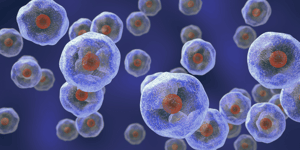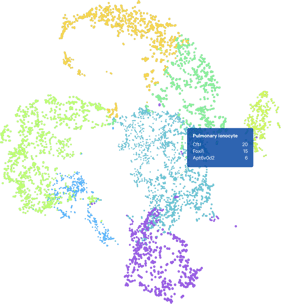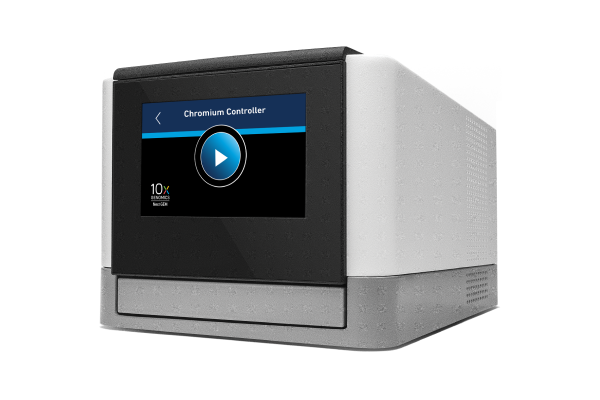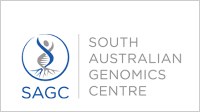
Single Cell Sequencing
Single cell RNA seq: Explore and interpret single cell gene expression profiles
Offering both microfluidics-based and combinatorial-barcoding single cell methods
Transcriptomics of individual cells can allow researchers to gain insights into cellular heterogeneity, identify rare cell types, and uncover new biomarkers for diseases.
The SAGC Offers an End-to-End Single Cell Service - From Project Consultation Through to Bioinformatics Analysis.
- Complete toolkit from 10X Genomics, including Chromium X and Chromium Controller
- Certified Service Provider for Parse Biosciences
- Enabling MGI Single Cell (DNBelab) - Only Genomics Facility in Australia with both the MGI DNBSEQ-T7 and DNBSEQ-G400

DECIDING WHICH SINGLE CELL TECHNOLOGY IS RIGHT FOR YOUR EXPERIMENT.
There are several things to consider when deciding which single cell technology is best suited for your experiment. We put together this simple guide to help navigate the features and benefits of the available technologies.
SAGC offers the complete range of 10X Chromium Applications
SAGC has a Chromium Controller and Chromium X Series from 10X Genomics to enable multiomic analysis through droplet GEM-based single cell partitioning and sequencing.
Applications available:
- Single cell RNA expression (GEX)
- Single cell Immune Profiling (5' with TCR/BCR options)
- Single cell ATAC
- Single cell ATAC + GEX
- Single cell RNA FLEX (FFPE compatible)
- Single cell CNV
- Cell surface marker tagging can be incorporated into some of these techniques and quantified during sequencing.
Chromium GEM-X is NOW AVAILABLE
Updates to the reagent chemistry and microfluidics for both the 3’ Single Cell Gene Expression and the 5’ Immune Profiling solutions.

Book a Consult to Discuss Your Next Project
Parse Biosciences Certified Service Provider

The SAGC is a Certified Service Provider for Parse Biosciences and their Evercode™ technology. Evercode is a plate-based technology (requires no specialised equipment) and provides a highly scalable and flexible method to analyse individual cells or nuclei.
The assay is available in four formats that accommodate experimental designs of any size and scale.
| Mini | WT | Mega | Penta | |
|---|---|---|---|---|
| Max Number of Cells | 10K | 100K | 1M | 5M |
| Max Number of Samples | 12 | 48 | 96 or 384 | 384 |

Technology Overview
Evercode split-pool combinatorial barcoding from Parse Biosciences profiles single cell transcriptomes without the need for microfluidic instruments.
The high-level process is very similar for users familiar with other single-cell RNA sequencing technologies.
- Create a single cell or nuclei suspension
- Fix the samples
- Prepare libraries
- Sequence the libraries
- Process the data via a pipeline before further analysis
Parse Evercode technology differs from droplet-based single cell technology by using the cell or nuclei as the reaction vessel. There is no microfluidics instrument required.
- Fixed and permeabilized cells/nuclei are loaded into a 96 well Round 1 Plate that is preloaded with well-specific barcodes. The RNA is reverse transcribed in situ with barcoded oligo dT and random hexamer primers.
- The cells/nuclei are pooled and loaded into a second 96 well plate. An adaptor with a well-specific barcode is ligated to the first barcode. This is repeated to add a third barcode.
- Pooled cells/nuclei are divided across several sublibraries and lysed. A fourth sublibrary-specific barcode is added during sequencing library preparation.
- After sequencing, each transcript is assigned to a single cell/nuclei based on a unique combination of the four barcodes.
A key aspect of the Parse Biosciences Evercode technology is sample fixation, which is applicable to a wide range of animal cells/nuclei. Cells/nuclei are fixed in about 65-70 minutes, and fixed samples are stable for up to six months. This means you can work on a time course study, share samples between laboratories, or accumulate samples before analyzing them all together.
EvercodeTM Single Cell Technology: Evercode allows researchers to conduct scalable single cell experiments with no microfluidics instrument required. The assay is available in four formats that accommodate experimental designs of any size and scale.
| Whole Transcriptome | Species agnostic *not compatible with Plants | |
|---|---|---|
|
TCR |
Human, Mouse |
Maps paired TCR sequences together with the T cells' whole transcriptome profiles. |
|
BCR |
Human, Mouse |
Maps paired BCR sequences together with the B cells’ whole transcriptome profiles. |
|
CRISPR Detect |
Enables the screening of extensive guide RNA libraries in up to 1 million cells in a single experiment. This allows the analysis of hundreds to tens of thousands perturbations. The kit offers guide RNA enrichment suitable for 16 distinct sublibraries and is compatible with all three Evercode WT formats. |
|
|
Gene Select |
Human, Mouse |
Gene Select is a hybrid capture based enrichment solution allowing research to focus on sequencing only genes of interest. |
Sequencing Single Cell Libraries
ESTIMATED SAMPLETHROUGHPUT FOR MGI DNBSEQ G400 AND T7 SEQUENCERS
Based on recommendation of 25K reads per cell Deeper sequencing may be recommended based on library type or study aim| Number of Samples per Flow Cell | ||
|---|---|---|
| Target Number of Cells | DNBSEQ G400 FCL | DNBSEQ T7 FCL |
| 5,000 | 14 | 46 |
| 10,000 | 7 | 23 |
| 20,000 | 3 | 11 |
Single cell experiments 'at scale' - the million cell experiment

- Single Cell RNA (scRNA-seq)
Single Cell RNA (scRNA-seq)
Submit Fresh Cells in sterile microcentrifuge tubes. Cell Submission ~ 1000 – 2000 cells/µl in PBS + 0.04% BSA. Please contact us for more information.
Client prepared libraries should be pooled and submitted in a single tube. A minimum of 10 nM in 100 µl of pooled library should be provided.

